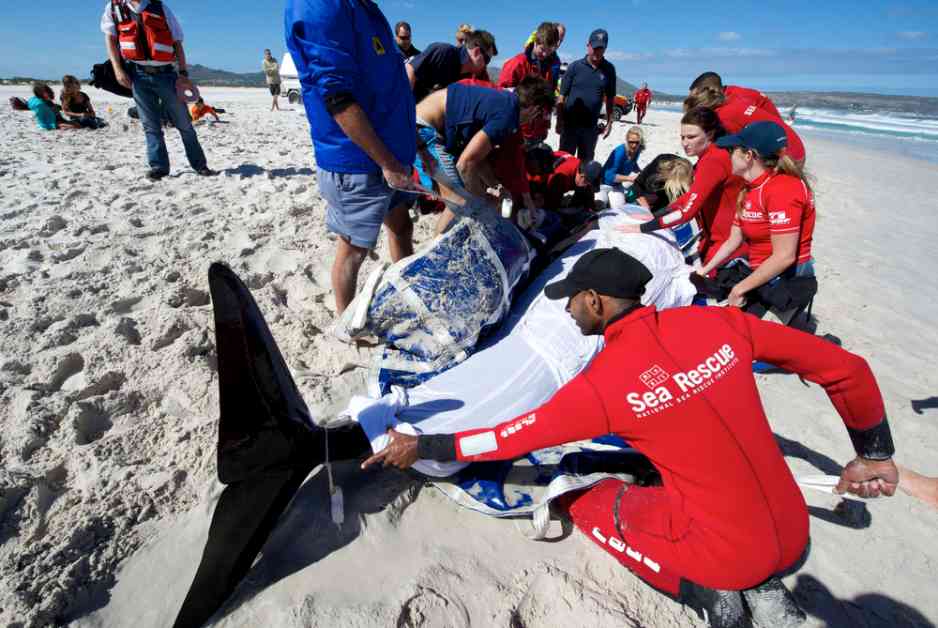Pilot whales, known for their tight-knit social groups, have been facing an alarming increase in mass strandings globally since 2023. Last year alone, there were multiple incidents of pilot whales washing up on beaches, such as in Western Australia and Scotland, resulting in the death of many of these marine mammals. While some were successfully rescued, the overall trend of strandings is concerning.
Whale stranding, or beaching, is a phenomenon where whales and dolphins end up stranded on beaches, often leading to their demise. This behavior has been particularly prevalent among pilot whales, which typically prefer deeper waters. There are several reasons why whales may strand themselves, including bad weather, navigation errors, sickness, and even birthing. Unfortunately, the chances of survival for stranded whales are slim due to overheating and the stress of being out of the water for too long.
Scientists are now trying to understand the underlying causes behind these mass strandings. Environmental factors like sloping sandy beaches can disorient whales, leading them to shallow waters. Human activities, such as noise pollution from activities like oil and gas exploration, can also disturb these marine creatures. Long-term climate change is another factor that may contribute to the loss of habitat for oceanic creatures, potentially leading to more whale strandings in the future.
To address this issue, research and conservation efforts are crucial. By understanding the reasons behind whale strandings and taking steps to mitigate them, we can help protect these magnificent creatures and ensure their survival in the oceans. It is essential for us to consider the impact of human activities on marine life and work towards creating a more sustainable and harmonious relationship with the natural world.
In conclusion, the increase in pilot whale strandings is a cause for concern and requires further investigation and action. By raising awareness about the factors contributing to these incidents and implementing measures to protect marine life, we can make a positive impact on the welfare of these animals and the health of our oceans. It is up to all of us to take responsibility for the well-being of our planet and its inhabitants, both above and below the surface of the sea.






